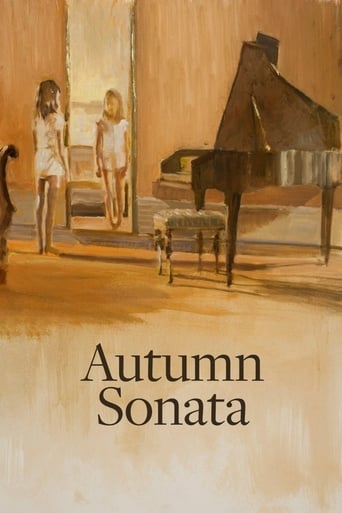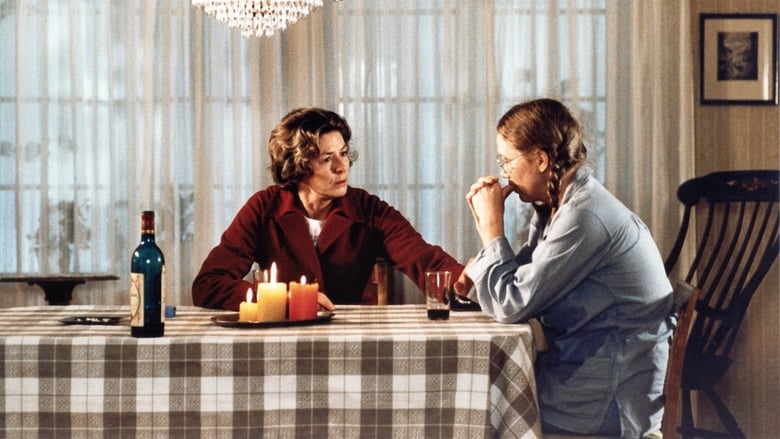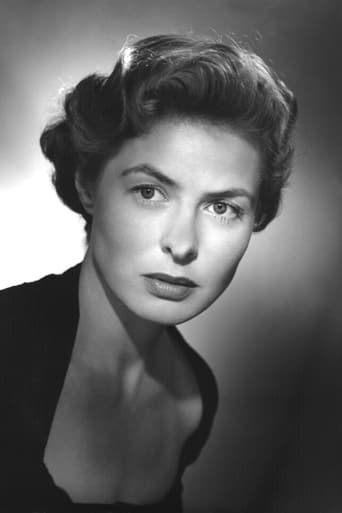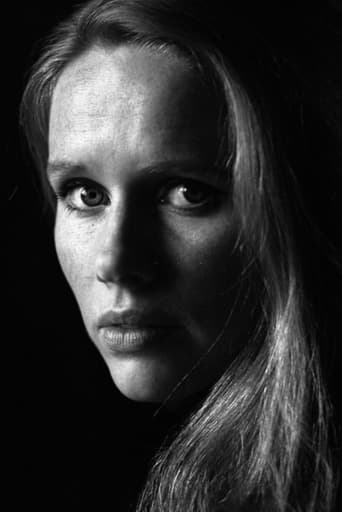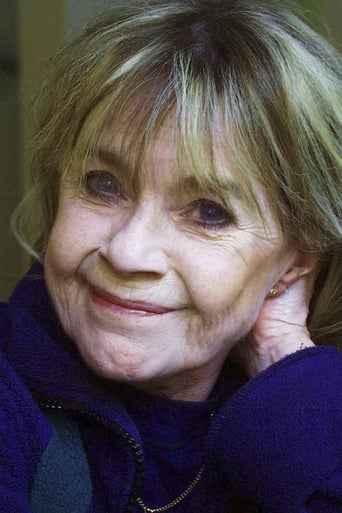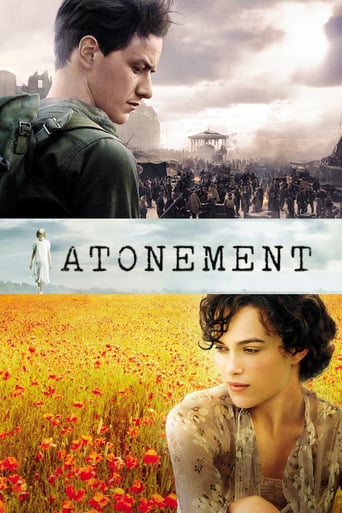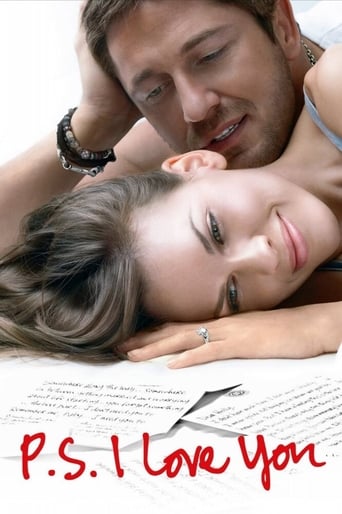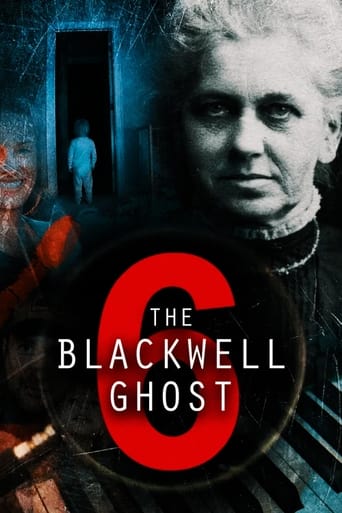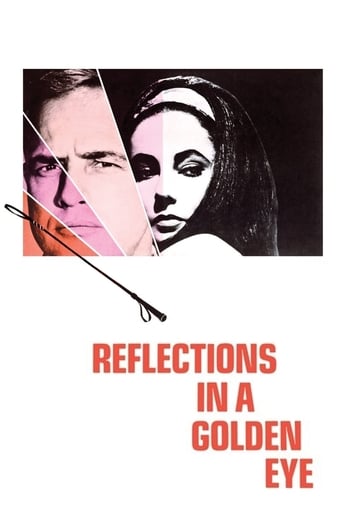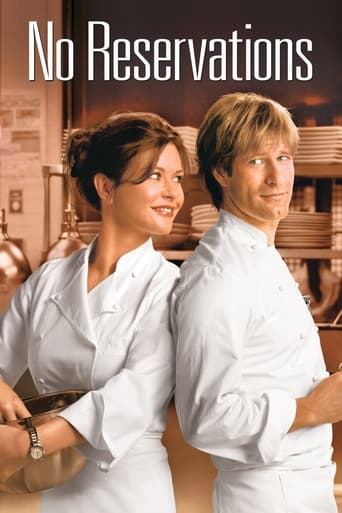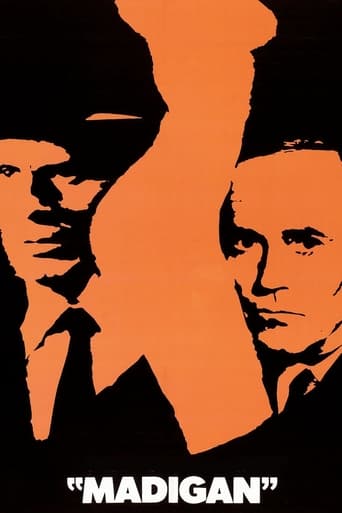Autumn Sonata (1978)
After a seven-year absence, Charlotte Andergast travels to Sweden to reunite with her daughter Eva. The pair have a troubled relationship: Charlotte sacrificed the responsibilities of motherhood for a career as a classical pianist. Over an emotional night, the pair reopen the wounds of the past. Charlotte gets another shock when she finds out that her mentally impaired daughter, Helena, is out of the asylum and living with Eva.
Watch Trailer
Cast


Similar titles
Reviews
Simply A Masterpiece
The film's masterful storytelling did its job. The message was clear. No need to overdo.
While it doesn't offer any answers, it both thrills and makes you think.
It’s sentimental, ridiculously long and only occasionally funny
Two giants of Swedish cinema - with names different by only three letters - finally collaborated with Ingmar Bergman's "Höstsonaten" ("Autumn Sonata" in English). Ingrid Bergman plays Charlotte, the mother who abandoned her family to pursue a career. Returning home forces her and her daughter Eva (Liv Ullmann) to reconcile while at the same time facing problems that their family has had.Film buffs know that Ingmar Bergman is one director who doesn't insult his audience's intelligence. With this movie he goes deep into the issues that have dominated this family, and how they're bound to play out. I haven't seen most of Bergman's movies, so I can't compare this to them, but I can say that it's one of the most profound and complex stories ever put to film. Maybe not the greatest movie ever made, but still one that you should see.
"Autumn Sonata" (1978), was the last film made by Ingmar Bergman for the cinema, which happened after this were videos for the TV. However, in the last film is not sketched any nostalgia, on the contrary, it is a reunion there are several characteristics that marked the famous Swedish director.Such as his strong relationship with the theater, with the actors, the use of symbols and metaphors, the simplicity of his locations (which he turns into a great advantage), the psychological character in formation and human relations, striking and challenging women , The expressiveness of a face in its close's and big close's and how much it speaks or even shouts moments of silence, moments when not verbalizing suggests so many things. As in the scene where Eva (Liv Ullman) plays a few notes on the piano for her mother, Charlotte (Ingrid Bergman), a magisterial and anthological moment, in the force and expressiveness of two actresses who say nothing on the scene but suggest a universe Of rivalries, misunderstandings and anguish in a (non) relation of mother and daughter.Autumn Sonata "is a tragic burden of human emotion, and is mostly a drama of confessions between two women, who dialogue with each other, which ends up generating a certain monotonous production noise, especially by the subtle clash of the Seem to dominate much of the film, which may have been elaborated in an attempt to generate a frenzy in the audience for the climax, which is not necessary or even does not work, because in the invitation letter written by Eva and In the opening monologue performed by Eva's husband, it is already clear that there, it will be a place to settle accounts.In addition to its musical allusion, the film's title keeps track of another central point: the idea of seasons and cycles. It is clear the reference of this change of seasons in the photograph of Sven Nykvist who collaborates with his pale and washed palette and without great dependences of the artificial light, lamps and candles, call attention to the cold of the winter. However, in what seems to be a contradiction, many of Nykvist's scenes are garlands with flowers. They appear in dozens of scenes. Normally associated with spring, the presence of flowers is a clear reminder of the cyclical nature of life and our relationships with others. The cold will pass, suggest the flowers, we only have to endure this during the winter.Filled with distressing emotion and agonizing eyesight, "Autumn Sonata" offers a methodically potent examination of the pain we choose to keep inside, and the scars that remain with us as a result. Like most Bergman films, the image is replete with existential questions and gloomy reflections, deeply investigating the mysteries of the challenges inherent in life, and depending on the interpretation, the ending may offer some level of optimism and catharsis, the film's elegiac mood And almost impossible confessions of hating and indifference remain irrevocably haunting.Another feature that Bergman has always been able to use, was his complete understanding that in the end, a film ends up always being the actors, they are the face and the memory of the film and they have the capacity to generate reciprocities with the public. So, Bergman is undoubtedly the director, but in the end, are Liv Ullman, Ingrid Bergman and Lena Nyman who play the Sonata.
Parental neglect and it's emotional issues is a topic that never ceases to be relevant. In Autumn Sonata, we face this topic head on through the relationship of Eva and her concert pianist mother Charlotte Andergast.From the beginning we're introduced to Eva from the perspective of Viktor, her...something. I say this as we already get a feel for the dysfunction of Eva through her relationship with Viktor. Viktor tell us he loves Eva, though he thinks it's impossible to express this to her in words she'll believe, and so Eva's emotional stuntedness becomes immediately evident.Eva invites her mother over, and we're introduced to Charlotte who from the moment she's on screen is an endless well of chatter. We watch the awkward but quite jovial exchange of mother and daughter who both seem to hope for reconciliation and an ending of their multi-year estrangement. This hope is quickly tarnished when Charlotte finds that her younger daughter Helena, who suffers from some unnamed nerve disease, is living with and being taken care of by Eva. Through the interactions of Charlotte and her daughter Helena we find ourselves witnessing first hand Charlotte's general remoteness, and almost frustration, as she deals with her daughter much like how one would deal with a girlfriend they hadn't seen in a while than a loving compassionate mother. From here the movie starts to build like a storm with there being one drop here, another there, and suddenly we're soaked in the Eva's absolute hatred of her mother via a lengthy late night talk interspersed with flashbacks.When one deals with a topic such as emotional neglect, one deals in something highly subjective. The entire validity of such a condition is dependent on the emotional expressions of the one(s) suffering. What makes Autumn Sonata a fascinating film is the incredible work of Ingrid Bergman and Liv Ullman, who though the strength their performances alone (There is no score in this film unless you count a couple brief excerpts of standard classical piano repertoire.), manage to completely validate the emotional dysfunction of their respective characters and hence the script itself which could have very easily fallen into the pits of soap operatic campiness in the wrong hands.On a more personal note, I can't help but be reminded of a relatively recent documentary Bloody Daughter where Stephanie Argerich provides a window into the incredibly private life of her world renowned concert pianist mother, Martha Argerich, and their family life. There's no dramatic late night conversation, but many of the same emotional issues come up in this real life concert pianist mother and daughter relationship. As a musician myself I can't help but wonder if one is greatly dispositioned toward such screwed up relationships.Nonetheless, Autumn Sonata is a fantastic movie that rides on an exceptional amount of drama provided by it's two exceptional actresses. Watch and enjoy the one and only collaboration of the two great Bergmans.
I could hardly stand the disturbing feeling of intimacy between Charlotte, the mother, and Eva, the daughter. "Autumn Sonata" is so real that it almost fails as a film for a more transcending merit that goes as far as your soul can reach. I don't know how to express it, the movie left me speechless, torn between the guilt from witnessing such heart-breaking displays of hatred on an almost voyeuristic level, or a strange feeling of fascination. Ingmar Bergman's "Autumn Sonata" is the cinematic demonstration that family is indeed the reservoir of all our repressed feelings, emotions, the source or the obstacle to our own life-guiding energies. The flute sound that introduces the film has a rustic serenity resonating like the appeasing lullaby for our worried minds. The quietness of a little house far from the town, Eva, not beautiful, hardly pretty, is embodying the austerity of her environment in a chameleonic way. Liv Ullman, Ingmar Bergman's muse, is again totally mesmerizing in a role that proves her immense versatility, but wait till you see Ingrid Bergman, in one of the greatest female performances ever, rightfully Oscar-nominated. When she makes her entrance, the whole place is inhabited by a shining aura. As Charlotte, Ingrid Bergman's charisma cancels out the apparent dullness of Eva and her insignificant husband. Charlotte is the authoritarian guiding force of the story, and our eyes follow her, secretly wishing that she would be the one to awaken Eva. But don't expect THAT awakening.The movie is an eye-opening experience, proving how the relationships with parents are children's cement to build their personality. Parents either enlighten your soul, or make you live in their shadows. I remember a line from "The Godfather Part II" where Fredo wished he could be like his father, a man with power, with a loving family, Michael had these words: "It's not easy being a son" Oh God, how right he was. When the mere idea to be better than your father is intolerable, the least you can do, is to please him. We all put some people on a personal pedestal, and "Autumn Sonata" talked to my soul through the story of a daughter whose ego was dwarfed by her mother's undeniable aura.The contrast between Charlotte and Eva, in beauty, colors and personality echoed my own contrast with the person I respect the most in that world, and I guess this is the reason why I'm so disturbed, because I can't even dare to imagine the pain he indirectly caused me, not because of him but because of the way I perceived him. But how can I blame him for my own perceptions? Or aren't the perceptions in fine inspired by a certain behavior? My empathy for Eva was so omnipresent that it perverted any possibility to rationally judge the film, with that reserve I admire so much from Northern cultures, and that has been so wrongly associated with coldness. But relating to Eva isn't saying much, because ironically, Charlotte was the character I respected the most. call it the 'Eva' of 'Fredo' syndrome.Ingmar Bergman's most unique talent is to convey universal feelings through simple shots, looks, or a specific use of music. Here, music plays a significant role as it highlights the talent of Charlotte, a virtuoso concert pianist, to play with emotions, to fake or overact them, and it lures us into the conviction that she used that talent even with her daughter and late husband. Eva's talent is more debatable, her mother reproaches that she plays it too sentimental, without passion, which are two separate things. Indeed, Eva seems passionless, and Charlotte, with her bright red dress is the quintessential lively old woman. But we know this is prefabricated, we know Charlotte's personality is only a cover while Eva simply fears to contradict her mother. There's one scene where Charlotte sobs while remembering her lover's death then she pulls herself together as if there was a natural weakness in grief. Ironically, Eva mourned during her whole life an inexistent childhood caused by a mother she loved despite everything.And progressively, the film reveals the complexity of Eva's torment and by drinking some red wine, like draining a sort of Charlotte-like force in her heart; she gains enough confidence for the ultimate confrontation with Charlotte. The slow pacing of the first act was simply the patient build-up until an exhausting but so emotionally rewarding climax, paralleled with Eva's long waiting before she could find the strength to open her heart. And then, Eva like drunk by the exquisite delight of having the last word, bluntly tells the truth right in the face of Charlotte, taking so many years off it. The devastated face of Charlotte immediately contrasted with Eva's confident eyes, Eva, almost embellished by her new confidence.Incapable to react to such hatred, she's hopelessly taking every emotional hits, realizing how responsible she is for her daughter's sadness, but maybe even sadder that she didn't realize it before. Yet, the ambiguity of the film relies on this strange impression that each character plays against the words, as said Liv Ullman in an interview, one of the first disagreement in Bergman's careers was when Ingrid refused to say 'hold me' after getting so many insults, when her instinctive reaction would've been to slap her daughter in the face, and being a woman, she probably knew better than Ingmar in that department.And indeed, she says 'hold me', but her eyes keep a dignity, while the real slap in the face is that masterpiece of austere realism, but even more poignant and heart-breaking as I dare anyone not to relate to it. Each family is built on dreams of stability and happiness but we all have our shameful secrets, our lies, our Oedipian feelings that can poison our entire existence. Watching "Autumn Sonata" is like an antidote against that poison.

